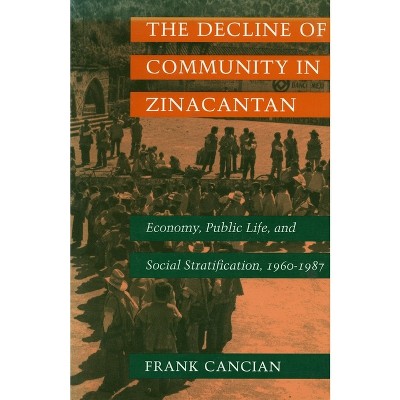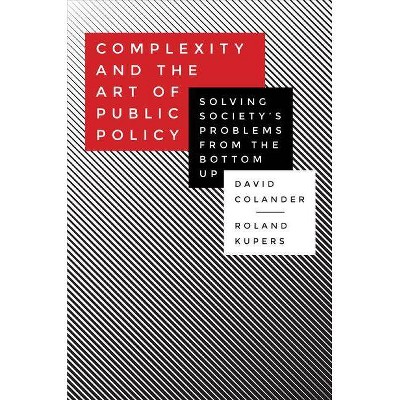Social Coordination and Public Policy - (Economy, Polity, and Society) by Roberta Herzberg & Gavin Roberts & Brianne Wolf (Paperback)

About this item
Highlights
- This volume explores, both in theory and in practice, what "social coordination" is and how public policies can help or hinder the processes of social coordination.
- About the Author: Roberta Q. Herzberg is distinguished senior fellow in the F. A. Hayek Program for Advanced Study in Philosophy, Politics, and Economics in the Mercatus Center at George Mason University.
- 256 Pages
- Business + Money Management, Economics
- Series Name: Economy, Polity, and Society
Description
About the Book
This volume explores how public policy can foster or limit social coordination in the market, civil society, and within various levels of government. Some chapters in this volume are more theoretical, applying public choice and market process theory to public policy issues, while other chapters examine practical, real-world case studies.
Book Synopsis
This volume explores, both in theory and in practice, what "social coordination" is and how public policies can help or hinder the processes of social coordination. In particular, these chapters examine the institutional incentives that motivate public policy decisions and their implementation to achieve specific individual and social goals. Some chapters in this volume are more theoretical, applying insights from the Austrian, Virginia, and Bloomington schools of political economy to public policy issues. Other chapters are more practical, exploring the broader implications of these theories to real-world public policy puzzles. Authored by individuals from a variety of disciplines with diverse interests in public policy, this work includes discussions of topics such as environmental policy, housing policy, and education policy, among others. A unifying theme across the chapters is that policymakers often advise one-size-fits-all solutions to complicated public policy questions but ignore the multitude of incentives faced by the "players of the game" and the subsequent development of diverse forms of social coordination. Social coordination is often left out public policy analysis but is crucial to the success of informal and formal institutional arrangements. The chapters aim to disentangle these issues of social coordination in public policy in theory and practice.Review Quotes
"How do people effectively coordinate to achieve their diverse goals? The papers in this volume make important contributions to answering this question. Drawing on the framework provided by mainline economics, the contributors offer novel theoretical and applied insights into what facilitates social cooperation, and what constitutes effective public policy. Both scholars and policymakers will find benefit from this important volume." --Christopher J. Coyne, George Mason University
About the Author
Roberta Q. Herzberg is distinguished senior fellow in the F. A. Hayek Program for Advanced Study in Philosophy, Politics, and Economics in the Mercatus Center at George Mason University.
Gavin Roberts is assistant professor of economics at Weber State University.
Brianne Wolf is assistant professor of political theory and constitutional democracy at Michigan State University.











